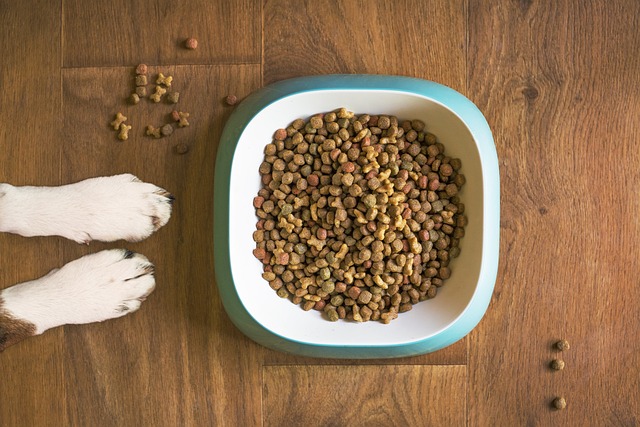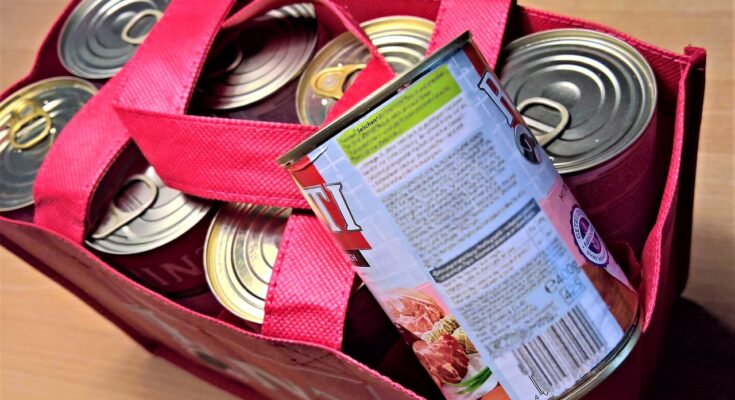If you’re a dog owner, you know that your furry friend is more than just a pet – they’re a part of your family. And just like any other family member, you want to make sure they’re healthy and happy. One of the most important aspects of keeping your dog healthy is by feeding them a balanced and nutritious diet.
Incorporating dog-friendly foods into your pup’s diet can provide them with the essential nutrients they need to stay healthy and strong. But with so many options out there, it can be overwhelming to know what foods are the best for your dog.
In this article, we’ll explore the importance of a balanced and nutritious diet for dogs, the different types of dog-friendly foods you should incorporate into their diet, and how to avoid foods that could harm your furry friend. By the end of this article, you’ll have all the information you need to keep your dog healthy and happy with a diet that they’ll love.
The Importance of a Balanced and Nutritious Diet for Dogs
Having a well-balanced and nutritious diet for your furry companion is like planting a garden. You need to give your pup the right amount of ‘nutrients’ to help them grow and bloom into their best selves.
Balancing nutrients such as protein, carbohydrates, fats, vitamins, and minerals is essential to keep your dog healthy and active. A diet with an appropriate balance of nutrients helps your pooch maintain a healthy weight, build strong muscles and bones, have a shiny coat, and boost their immune system.
It’s important to avoid fillers in your dog’s food. Fillers are ingredients that don’t provide any nutritional value and are added to pet food to increase volume and reduce costs. Fillers can be harmful to your pup’s health and cause digestive issues.
Instead, focus on feeding your dog high-quality food with natural ingredients that provide the right balance of nutrients. You can also customize your dog’s diet based on their age, weight, breed, and individual needs. A customized diet ensures that your dog is getting the right amount of nutrients and helps prevent health issues.
Lean Proteins
Get your pup in tip-top shape with some lean proteins that’ll have them feeling like a champion athlete.

Lean proteins are essential in keeping your dog healthy and strong. High-quality sources of lean proteins include chicken, turkey, fish, and lean cuts of beef. These sources are low in fat and high in protein, helping to maintain your dog’s muscle mass and build its strength.
When feeding your dog lean proteins, it’s important to practice portion control. Too much protein can be harmful to your dog’s health, leading to weight gain and potentially causing damage to their kidneys. Make sure to consult with your veterinarian to determine the appropriate amount of lean protein to feed your dog based on their age, weight, and activity level.
By incorporating lean proteins into your dog’s diet and practising portion control, you can help them maintain a healthy weight and promote their overall well-being.
Healthy Fats
Let’s dive into the benefits of incorporating healthy fats into your pup’s diet and how it can boost their energy levels and improve their coat’s shine. Dogs need a balanced diet that includes healthy fats to maintain their overall health and well-being.
Healthy fats are essential for regulating body temperature, supporting healthy skin and coat, aiding in nutrient absorption, and promoting healthy brain and organ function. To ensure that your dog gets the right amount of healthy fats, you should incorporate omega-3 sources like fish oil, flaxseed oil, and chia seeds into their diet. These sources contain essential fatty acids that cannot be produced naturally by your pup’s body.
However, it’s important to note that portion control is crucial when it comes to feeding your pup healthy fats. Too much of any type of fat can lead to obesity, which can result in various health problems. Therefore, it’s best to consult with a veterinarian to determine the right amount of healthy fats your dog needs.
In summary, incorporating healthy fats into your dog’s diet is essential for maintaining their overall health and well-being. Omega-3 sources like fish oil, flaxseed oil, and chia seeds can boost their energy levels and improve their coat’s shine. Just remember to practice portion control and consult with a veterinarian to determine the right amount of healthy fats your dog needs for a balanced diet.
Complex Carbohydrates
It’s crucial to incorporate complex carbohydrates into your pup’s diet to ensure they get the necessary energy and nutrients for optimal health and well-being.
Complex carbohydrates are made up of long chains of sugar molecules that take longer to break down, providing a steady source of energy for your dog. They are also rich in fibre, vitamins, and minerals that support healthy digestion and immune function.
The benefits of complex carbohydrates don’t stop there. They can also help regulate blood sugar levels and reduce the risk of obesity, diabetes, and other health issues.
Good sources of complex carbohydrates include whole grains, fruits, and vegetables. However, if your dog has a sensitivity to grains or other carbohydrate sources, there are alternatives such as sweet potatoes, lentils, and chickpeas that can provide the same benefits.
Consult with your veterinarian to determine the best carbohydrate sources for your dog’s specific needs.
Fruits and Vegetables
If you want to keep your furry friend healthy, it’s important to incorporate fruits and vegetables into their diet.
Blueberries are a great source of antioxidants, which can help reduce inflammation and improve cognitive function.
Carrots are packed with beta-carotene, a nutrient that promotes healthy skin and eyesight.
Finally, pumpkin is a good source of fibre and can aid in digestion.
By adding these dog-friendly foods to your pup’s diet, you’ll be supporting their overall health and well-being.
Blueberries
You can give your furry friend a sweet treat by feeding them some juicy blueberries. Not only are they a tasty snack, but they also offer numerous health benefits for your furry pal. Blueberries are a great source of vitamins C and K, fibre, and antioxidants, which can help improve your dog’s immune system and eye health.
If you want to get creative with blueberry recipes for your dog, you can try making some homemade blueberry dog treats. Some popular recipes include blueberry and oatmeal dog biscuits or frozen blueberry and yoghurt dog popsicles. However, it’s important to remember that blueberries should only be given to your dog in moderation, as they are still high in natural sugars.
As long as you’re mindful of portion sizes and incorporate blueberries into a balanced diet, your furry friend can enjoy the many health benefits of this delicious fruit.
Carrots
Want to give your furry friend a crunchy and nutritious snack? Carrots are a great option! They are low in calories and high in vitamins and minerals. For example, one medium-sized carrot provides over 200% of your dog’s daily vitamin A needs. This can help improve their vision and maintain a healthy coat.
In addition to their nutritional benefits, carrots can also serve as a fun and tasty addition to your dog’s meals. Here are some carrot recipes that your dog is sure to love:
- Carrot and apple bites: mix grated carrots and chopped apples together and bake at 350°F for 15-20 minutes.
- Frozen carrot treats: blend cooked carrots with some plain yoghurt and freeze them in ice cube trays for a refreshing summer snack.
With these recipes and the many benefits of carrots for dogs, you can easily incorporate this healthy vegetable into your furry friend’s diet.
Pumpkin
Get ready to add a tasty and nutritious ingredient to your pup’s meals with pumpkin! Not only is pumpkin delicious, but it also has numerous benefits for your furry friend.
Pumpkin is high in fibre, which can help regulate your dog’s digestive system and prevent constipation. Additionally, pumpkin is low in calories and fat, making it a great ingredient for dogs who need to lose weight or maintain a healthy weight.
One fun way to incorporate pumpkin into your dog’s diet is by making pumpkin recipes such as pumpkin and peanut butter dog treats or pumpkin and chicken stew. These recipes are not only tasty but also provide your dog with the added benefits of pumpkin. Just be sure to use pureed pumpkin without any added sugar or spices.
You can also add a spoonful of pumpkin to your dog’s regular meals as a healthy and delicious supplement. With all the benefits pumpkin has to offer, it’s no wonder it’s becoming a popular ingredient in dog food.
Foods to Avoid
When it comes to feeding your furry friend, be cautious of certain edibles that could put them at risk. There are some toxic food items that could cause severe health problems for your dog, so it’s important to know what to avoid.
Here are three food items that you should keep away from your dog:
- Chocolate – Chocolate contains a chemical called theobromine that is toxic to dogs. Even a small amount of chocolate can cause vomiting, diarrhoea, seizures, and even death.
- Grapes and raisins – These fruits can cause kidney failure in dogs. Symptoms may include vomiting, diarrhoea, lethargy, and dehydration.
- Onions and garlic – These vegetables contain compounds that can damage your dog’s red blood cells, leading to anaemia. Symptoms may include weakness, lethargy, and pale gums.
In addition to these toxic foods, it’s important to be aware of common food allergies in dogs. Some dogs may be allergic to ingredients like wheat, soy, or corn. If you notice your dog scratching excessively, experiencing diarrhoea or vomiting, or developing skin rashes, it’s possible that they have a food allergy.
It’s best to consult with your veterinarian to determine the best course of action.
How to Incorporate Dog-Friendly Foods into Your Dog’s Diet
Oh, so you’re one of those dog owners who think feeding your pup table scraps and leftovers is a good idea? Well, let me tell you, incorporating dog-approved foods into your pet’s diet is not only healthier, but it also shows that you actually care about their well-being.
One way to do this is by meal planning. Just like with our own diets, it’s important to plan out your dog’s meals to make sure they’re getting all the necessary nutrients they need. Consult with your veterinarian to determine the appropriate amount of food for your dog’s breed, age, and activity level. From there, you can choose dog-friendly foods that will provide the right balance of nutrients.
In addition to meal planning, you can also incorporate dog-friendly foods through treatment options. Instead of giving your dog processed, store-bought treats, opt for healthy, homemade options. Some examples include carrots, blueberries, and green beans. You can also make your own dog treats using ingredients like whole wheat flour, peanut butter, and pumpkin puree.
Not only will your dog love the taste, but you’ll feel good knowing you’re giving them something nutritious and beneficial to their health. By incorporating dog-friendly foods into your pet’s diet through meal planning and treatment options, you’re ensuring they have a healthy and happy life.
Frequently Asked Questions
What are some common signs that my dog is not getting the nutrients they need from their diet?
If you’re wondering whether your dog is getting all the nutrients they need from their diet, there are a few symptoms of nutrient deficiency you should keep an eye out for.
Some common signs include lethargy, changes in appetite, and a dull coat.
If you notice any of these symptoms, it may be time to make some dietary changes for better nutrition.
Consider introducing more protein, healthy fats, and fibre into your dog’s diet, as well as cutting back on processed foods and treats.
Consult with your veterinarian to determine the best course of action for your furry friend.
Can certain dog-friendly foods help improve my dog’s coat or skin health?
You know what they say, a shiny coat is a sign of good health! And luckily, there are plenty of dog-friendly foods that can help improve your pup’s coat and skin health.
Healthy treats like salmon or sardines are packed with Omega-3 fatty acids, which can reduce inflammation and promote a healthy coat. Supplement options like biotin can also provide a boost to your dog’s skin and coat health.
On the other hand, there are foods to avoid for skin and coat health, like processed meats and high-fat foods. By incorporating these dog-friendly foods into your dog’s diet, you can help keep their coat and skin looking and feeling their best.
Are there any dog-friendly foods that can help with dental health?
Dog-friendly foods can play a big role in improving your furry friend’s dental health. By incorporating certain foods into your dog’s diet, such as carrots, apples, and raw bones, you can help remove plaque buildup and improve their overall oral hygiene.
Dental health is a crucial aspect of your dog’s overall well-being because it can lead to a host of health issues if left untreated. Ensuring that your dog has healthy teeth and gums can help prevent bad breath, tooth loss, and even infections that may spread to other parts of the body.
Adding dog-friendly foods for better dental health to their diet is an important step in keeping your dog healthy and happy.
How much of certain foods should I be giving my dog to ensure a balanced diet?
To ensure your dog has a balanced diet, it’s important to practice portion control and consider nutritional supplements. Portion control means measuring out the appropriate amount of food based on your dog’s size and activity level. Avoid overfeeding your dog.
Add nutritional supplements to your dog’s diet to provide additional vitamins and minerals. However, consult your veterinarian before adding any supplements.
A balanced diet keeps your dog healthy and prevents obesity and other health issues.
Are there any dog-friendly foods that can help with weight management or weight loss?
Looking for ways to help your furry friend lose weight? There are plenty of delicious and nutritious dog-friendly foods that can help with weight management!
Healthy treats like baby carrots, green beans, and apple slices are not only low in calories but also packed with vitamins and fibre that can keep your pup feeling full and satisfied.
It’s also important to establish regular exercise routines to burn off excess energy and calories. Whether it’s a daily walk or a game of fetch in the backyard, getting your pup moving is key to maintaining a healthy weight.
So don’t wait any longer, start incorporating these tips into your furry friend’s routine and watch them thrive!
Conclusion
Congratulations! You’ve taken the first step in ensuring your furry friend lives a healthy and happy life by reading about the importance of a balanced and nutritious diet.
By incorporating lean proteins, healthy fats, complex carbohydrates, and fruits and vegetables into your dog’s meals, you can help prevent health problems and promote overall well-being.
But don’t forget, there are certain foods that you should avoid giving your dog, such as chocolate, grapes, and onions.
It’s also important to consult with your veterinarian before making any major changes to your dog’s diet or introducing new foods.
Remember, your dog depends on you to provide them with the best possible care, and a healthy diet is one of the most important ways you can do that.
So, go ahead and give yourself a pat on the back for taking the time to learn about dog-friendly foods and making the effort to keep your furry friend healthy.
With your continued dedication and care, your dog will surely thrive and be the envy of all the other dogs in the neighbourhood.




